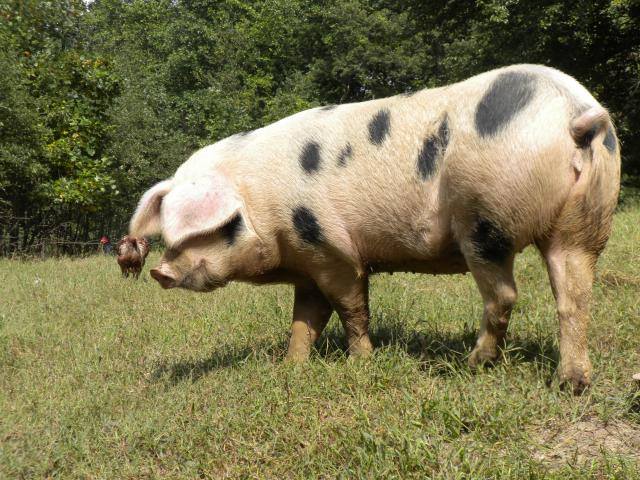
Livestock conservation charity Rare Breeds Survival Trust (RBST) has said the situation for iconic British pig breeds is 'extremely worrying'
While registration of breeding females remains largely stable or increasing for sheep and cattle, with positive trends for goats, the situation for pigs has been described as “extremely worrying” by the charity.
Out of the 11 native pig breeds, all except the Berkshire, Middle White, Tamworth and Large Black, are showing declining numbers.
The Gloucestershire Old Spots – arguably one of the breeds most well-known to the general public – is showing the most dramatic decline.
In 2014, there were 837 sows producing birth-notified litters, while by 2016 this had dropped to only 416. This puts the breed in Watchlist Category 4 – At Risk.
'Economic factors'
RBST CEO Tom Beeston says: “It is not that our native breeds lack their enthusiasts and we must give huge credit to those breeders who devote time, energy and money to ensuring the survival of their favoured breeds.
“It is these efforts that have seen the situation for most native pig breeds vastly improving over the past 40 years. However, economic factors have a massive influence and for many people working with pigs, breeding is very challenging at present.”
From the Watchlist, RBST reports hopeful signs for native sheep breeds, despite the uncertainty of Brexit looming large over the sheep industry.
Renewed interest has resulted in broad increases across the Primitive and Hill & Heath breeds, with numbers for Borerays and Whiteface Dartmoors going up.
Conversely, the picture is more mixed for the Shortwool & Down and Longwool breeds although Dorset Down and Greyface Dartmoor registrations are increasing at an encouraging rate.
One new breed, the Derbyshire Gritstone, has made its first appearance on the Watchlist, entering in Category 4 – At Risk.
#GoNative
With the Watchlist helping fulfil RBST’s role of monitoring native breed livestock, the charity is working with key food and farming industry partners to promote consumption of native breed products.
Tom Beeston says: “Our message to breeders and consumers alike is #GoNative. We want to emphasise the importance of pedigree breeding and registrations to producers and to push home the message to consumers that unless the meat they buy comes from a registered animal, they can’t be sure they are eating the real thing.
“We have to maintain the genetic diversity of our native breeds of livestock and to do that we have to make the market for the produce to encourage more breeders.
“By continuously emphasising the necessity for breed registrations, we will also promote the importance of maintaining the integrity of native breed produce.”
